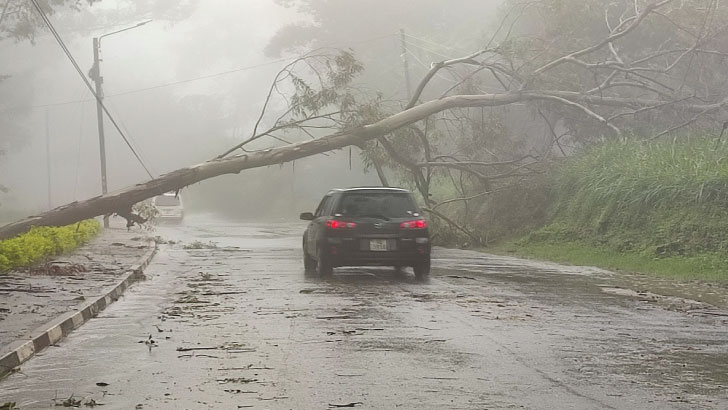Businesses will have to wait longer for the resumption of normal electricity supply following the devastating impact of Tropical Cyclone Freddy which has affected generation, worsening the already challenging power supply status.
The storm has led to intermittent power supply over the past six days, taking away another 56 megawatts (MW) from the national power grid. This has left Electricity Generation Company (Egenco) with 231MW against an estimated total hydro power generation 390MW.
The current deficit is on top of another one caused by the damage to Kapichira Hydro Power Station in January last year by Tropical Cyclone Ana, which knocked off 129MW from the national power grid.
Speaking in an interview yesterday, Malawi Confederation of Chambers of Commerce and Industry president Lekani Katandula said businesses are already languishing due to inadequate power supply and the much higher cost of using diesel-powered generators.

He said: “Though understandable looking at Tropical Cyclone Freddy impact, this will add to the enormous challenges already being faced by the business community.
“We can only hope that the recovery works will be expedited and efforts to make our infrastructure more resilient prioritised thereafter.”
Chamber for Small and Medium Businesses Association executive secretary James Chiutsi said small-scale enterprises have been struggling amidst erratic power supply in the past one year.
He said this has suppressed productivity of SMEs who employ about 1.6 million people and are a catalyst for development.
Said Chiutsi: “For the country to develop, small-scale enterprises require electricity to do small-scale production.
“You know very well that SMEs are the ones that feed into the big corporation. Now the persistent power outages obviously mean that corporates are affected as well.”
He said the small firms are sailing through tough times as their production capacity has gone back several years.
Commenting on the same, National Working Group on Trade Policy chairperson Frederick Changaya observed that businesses suffer exogenous downtime due to prolonged blackouts.
He said the most worrisome part is that a business has fixed costs and that it will have to pay whether they are running or not.
Changaya, who is also Applecore Grain and Milling Limited managing director, said: “The worst part is where we pay demand metering charge to Escom whether they have power or not. This has to be reviewed.”
Egenco chief executive officer William Liabunya said in an interview yesterday that apart from Kapichira Hydro Power Station, which has been not functional for the past year, they have only 12 machines operating out of the 15 that were working before Tropical Cyclone Freddy hit the Southern Region.
He said their machines were greatly affected by flood waters, which forced the firm to be switching off the machine to prevent them from damage.
MCCCI is on record as having said that the power blackouts are affecting the manufacturing industry, which is spending K260 million per day, translationg to K95.6 billion annually to run diesel-powered generators during outages.
Source: The Nation_Friday, March 17, 2023_by Grace Phiri
